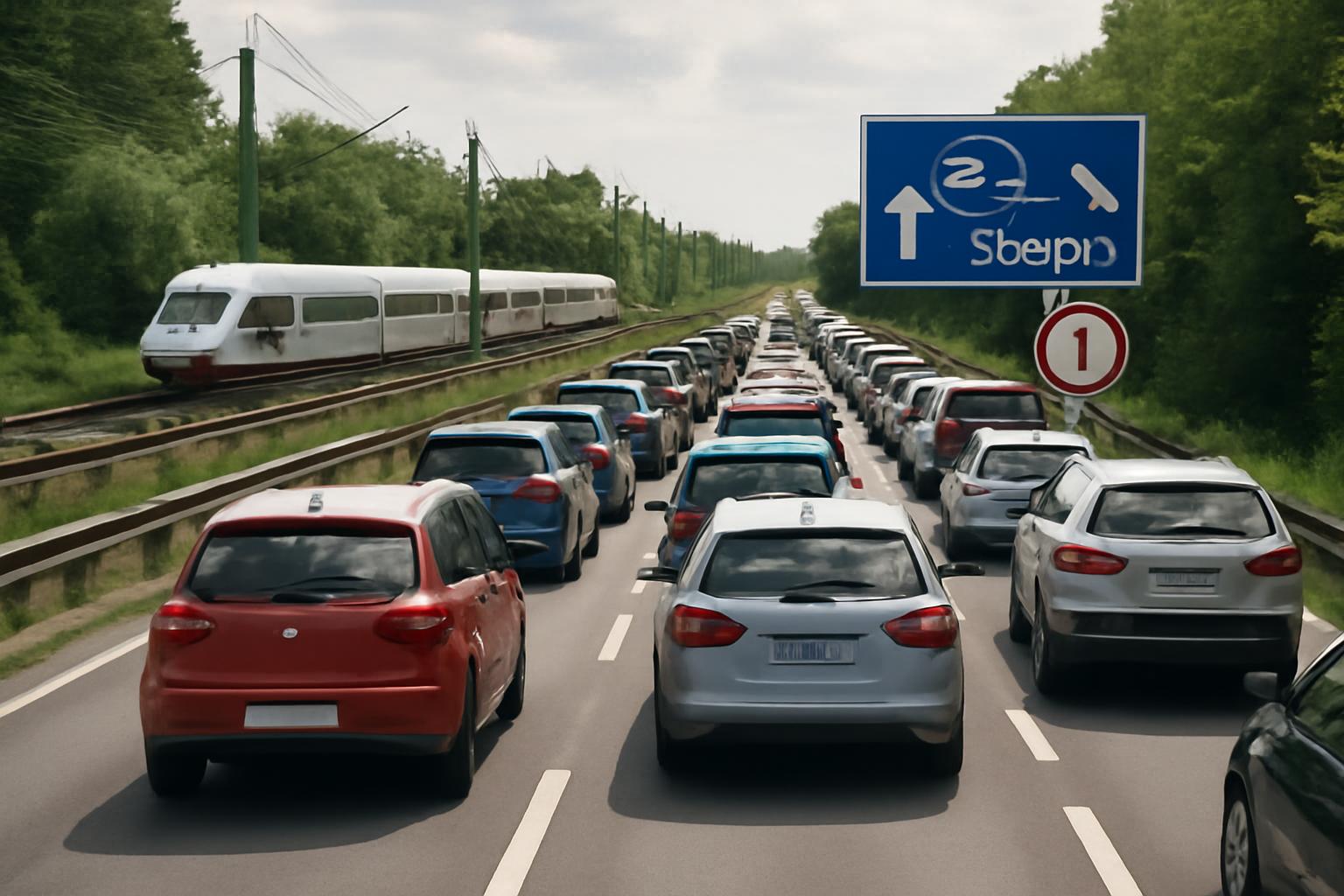Germany is entering its peak summer travel season as the school holidays begin for most federal states, setting the stage for severe traffic congestion on the autobahns and crowded trains. The auto clubs ADAC and ACE offer fraught advice: avoid peak times, perhaps leave mid-week, carefully check for roadworks and jams, and think twice before abandoning the motorway unless gridlock is truly catastrophic. Likewise, rail travelers face heavily booked trains to holiday hotspots, with the added complication of finite bicycle spaces and—on local trains—no reservations at all. To make matters more complicated, internal border controls reintroduced in May are expected to cause delays at numerous crossings, not only slowing entry to Germany but also impeding travel to neighboring countries and beyond. Travelers are told: prepare for the worst; bring food and water; gird yourselves with patience.
How disheartening, yet so illustrative of a system overwhelmed not by an unpredictable calamity, but by its own sclerotic arrangements! Year after year, we witness these same warnings and the lamentable acceptance that congestion, waiting, frustration, and waste are inevitable features of modern holiday travel. Is it not a damning indictment of a centrally organized infrastructure, where the intricate lattice of regulations, border controls, monopolized public transport, and lack of real-time coordination lead only to recurring misery for millions?
The summer travel chaos, in its predictable repetition, reveals a deeper flaw—the inflexible, monopolistic grip of state-led planning and its contempt for spontaneous order. Permit me to say, with the passion this fiasco inspires: Where are the signals that might truly coordinate the vast desires of free individuals to travel, relax, and reunite? Why are public and private actors alike left to grope through bureaucratic fog, following the dictates and warnings of auto clubs as if this were the best modernity can offer?
Imagine a decentralized network, where road use, train reservations, and border crossings respond dynamically to demand—where congestion pricing, open competition between mobility providers, and technological innovation are allowed to flourish. Imagine if the state, rather than obsessively regulating and controlling, would trust in self-regulating mechanisms, enabling free experiment and adaptation at every level. How different would this picture look! Trains and buses could adjust schedules fluidly, private initiatives could offer novel mobility options, and borders—if they must exist at all—could be managed with precision, minimizing friction instead of multiplying it.
Ultimately, what this annual ritual of “traffic warnings” demonstrates is not the inevitable burden of mass prosperity, but the poverty of imagination when a society treats individuals as masses to be marshaled, herded, and advised from above. It is time to reject this inherited complacency. Let us rediscover the virtues of competition, choice, and local knowledge—not just in commerce, but in the very infrastructure of our collective life. Until we do, the summer will bring not joy, but queues and counsel to be “patient.” What a failure—and what a call to action!
